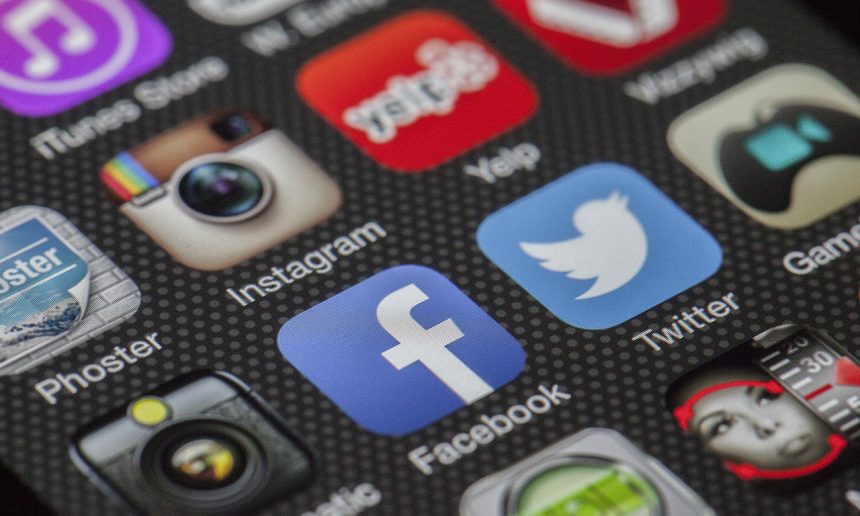Elections usually come across as a very grueling process; the intensity, the stakes, the resolve to outdo your opposition, the jabs, the counter-punches; all these almost make elections like showbiz. But the truth is, elections are a critical undertaking with the aforementioned attributes and continue to be the best avenue for choosing leaders.
And then, here comes Ghana, a trailblazer in Africa’s quest for political dominance and emancipation from patriarchy, as it continues to illuminate the orbit of good governance and democracy, much to the admiration of a barge of nations.
Elections over the past half-decade have invariably moved from the norm of traditional campaigning and rural/grassroots politicking towards an arrowhead of digital communications and social media, spearheading the efforts of securing victory at the polls, and as you rightly thought or witnessed, Ghana wasn’t left behind.
Many pundits had earmarked the 2016 general elections as the most fascinating, explosive, tactful and highly elusive elections yet in the history of the country. The stakes were exceptionally high. On one side of the divide stood a persistent Nana Akuffo Addo who was having a go at the presidency for the third time after two failed attempts. A dignified lawyer, distinguished public servant, and a diplomat extraordinaire, losing the election was surely not a slot on Nana Addo’s chess board.

On the other side was the incumbent: The dashing, progressive & youthful president, John Mahama. A product of the political mill of Ghana, who was seeking re-election on the backdrop of massive infrastructural development and a booming private sector industry. Failing to win kept him on the threshold of making unpalatable history as the first president to serve Ghana for just a term under the Fourth Republic.
The hashtag #Knowyourpresident trended days leading to the inauguration which introduced the man on a personal level. Instead of the usual image-attack campaigns known to Ghana, Statecraft took the bulls by the horns and ran a campaign showcasing a man who has served his people all his adult life and was ready to continue, on a presidential scale.
With a population of just over 28 million people and an internet penetration of just about 29%, both candidates must have realised how much of a part the internet and social media had to play in the elections. As of 2016, well over 3.5 million Ghanaians were active on Facebook according to Internet Worldstats , averaging a 13% penetration rate, which is a huge number for campaign and database purposes. As a result, both parties needed an aggressive online campaign to clinch victory at the polls.
Arise For Change
With a screaming and similar “Change” campaign slogan, Nana Akuffo Addo and his team went the way of the innovative group that elected Nigeria’s President Muhammadu Buhari and the APC into power aggressively through social media.
Led by 30yr old entrepreneurs and media experts, Adebola Williams and Chude Jideonwo from the governance consulting firm Statecraft, they single-handedly handled communications for President Nana Addo (In collaboration with his campaign team), churning out loads of well-thought-out content that appealed to the Ghanaian voter demographic. Having ran one of the best digital political campaigns in Africa, Nana, and his team were well in right to entrust what was the core part of his campaign strategy to this young team of core millennials.

Boy, did they run one of the best campaigns the Ghanaian social media ecosystem has ever witnessed. From sharp quality “Change” banners constantly in your face, to Instagram Ad’s on your feed, they simply portrayed Nana Addo in a light that appealed to everyone, both old and young. Even after victory, work didn’t stop.

The hashtag #Knowyourpresident trended days leading to the inauguration which introduced the man on a personal level. Instead of the usual image-attack campaigns known to Ghana, Statecraft took the bulls by the horns and ran a campaign showcasing a man who has served his people all his adult life and was ready to continue, on a presidential scale.
Due to John Mahama’s excellent role in ensuring the completion of various edifices around the country, there wasn’t a lack of content thereof. From Drone covered short videos of the infrastructural developments going on across Ghana, to daily updates on the campaign trail
Team Mahama
On the flip side, spearheading the digital efforts of the John Dramani Mahama campaign was an Image consultant and new media crisis management expert, popularly known as “Mr Fix Nigeria”, Godwin Ohimai Amaize. His image crisis firm, Olivier Pope (which also played a part in the digital efforts of former Nigerian President, Goodluck Jonathan) in collaboration with Ovation Magazine, which is chaired by Mr Dele Momodu (who many have suggested has vested interests in Ghana due to his close relationship with John Mahama), owned Mahama’s digital campaign with some of the best strategies ever seen.

Due to John Mahama’s excellent role in ensuring the completion of various edifices around the country, there wasn’t a lack of content thereof. From Drone covered short videos of the infrastructural developments going on across Ghana, to daily updates on the campaign trail, to a very coherent and personal touch by John Mahama himself, when he would personally tweet and engage with followers on Twitter, Ohimai and his team knew what it took to get the job done and they were excelling at this.
Loads of hashtags emanated from this team so much that it was difficult figuring out which to follow. Most prominently, #JmToaso , #Ghanaatwork, #TransformingGh, sold the message of Transformation. Few weeks to election day, the Olivier team rounded up with a brilliant comedy series, showcasing Mahama’s good works, with Nigerian actor, Nkem Owoh (Osuofia) as the main character and was aptly dubbed, #OsuofiainGhana. This four-part series gained so much traction in so short a period with over 1 million Ghanaians watching, liking, and retweeting. To sum it up, this was a well-thought-out and executed campaign.
But maybe, after all, elections are not won on Twitter or Facebook. Nana Addo emerged as the eventual winner but by social media efforts, one would have thought Mahama had a clear coast to victory.
Regardless, the good thing to come out of these past elections is the progressive adoption of social media for political campaigns and seeing/documenting the influence it wielded and the emerging effect on the victor.










